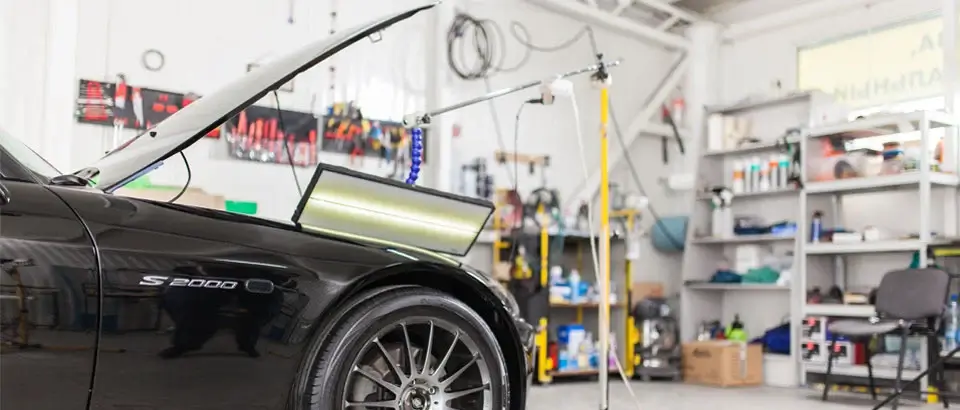How Workshop Smart Lift Monitoring Increases Safety in Vehicle Workshops

Vehicle safety and efficiency are critical components of any automotive workshop. In recent years, the use of technology has significantly advanced the safety measures in these environments. One such advancement is the implementation of smart lift monitoring systems, which play a crucial role in ensuring the safety of both vehicles and technicians in workshops. For businesses like Resolute Dynamics, a leading road safety company in the UAE offering products such as speed limiters, speed limiter certificates, and school bus safety solutions, maintaining a safe and efficient workspace is paramount. This emphasis on safety extends to all areas, including workshops, where modern solutions like smart lift monitoring are becoming indispensable.
Integrating a smart lift monitoring system in vehicle workshops can be as impactful as ensuring compliance with road safety regulations, such as obtaining a speed limiter Certificate Umm Al-Quwain. These systems enhance workshop safety by continuously tracking and reporting the operational status of vehicle lifts, which are critical tools for maintenance and repairs. Let’s explore how smart lift monitoring systems contribute to increased safety in vehicle workshops.
- Real-Time Monitoring and Alerts
One of the most significant safety benefits of smart lift monitoring systems is real-time data collection. These systems are equipped with sensors and IoT (Internet of Things) technology that monitor the lifts’ status continuously. This real-time data allows workshop managers and technicians to stay informed about the lift’s condition, load capacity, and overall operational health. In case of any malfunction or overload, the system instantly alerts the staff, preventing potential accidents or injuries that could occur if a vehicle lift were to fail.
Additionally, these systems are designed to automatically shut down or lock a lift if unsafe conditions are detected. This proactive measure ensures that technicians and vehicles remain safe, reducing the risk of accidents due to faulty equipment.
- Preventative Maintenance
Just as staying up-to-date with certifications like a speed limiter Certificate in Umm Al-Quwain is crucial for road safety, keeping workshop equipment in optimal condition is key to ensuring a safe working environment. Smart lift monitoring systems collect data that can help identify early signs of wear and tear. By tracking metrics such as the frequency of use, load strain, and temperature, these systems can predict when a lift is likely to require maintenance.
This data allows workshop managers to schedule preventative maintenance before any serious issues arise. Preventing breakdowns or failures not only increases safety but also reduces downtime, keeping the workshop running smoothly and efficiently.
- Enhanced Compliance with Safety Standards
Workshops need to adhere to strict safety regulations, and smart lift monitoring systems can aid in compliance. These systems ensure that lifts operate within the prescribed safety limits and maintain an accurate record of operational data. This data can be useful during safety audits, ensuring that the workshop is compliant with both local regulations and manufacturer guidelines for equipment use.
Moreover, by ensuring that equipment is functioning correctly and safely, workshops can avoid fines or legal repercussions related to safety violations. Just as adhering to road regulations with speed limiters and certificates is vital, maintaining compliance within the workshop is equally important for business reputation and safety.
- Increased Technician Safety
The safety of technicians is a top priority in any vehicle workshop. Vehicle lifts that malfunction or are improperly used can pose significant hazards. With smart lift monitoring, technicians have access to real-time data, helping them make informed decisions about the safety of the lifts they are using. They can avoid risky situations where a lift might be overloaded or malfunctioning, drastically reducing the risk of workplace accidents.
In addition to safety, these systems contribute to improved technician efficiency. Since the system provides clear, up-to-date information, technicians spend less time troubleshooting potential issues with the lifts and more time focused on vehicle repairs and maintenance.
- Cost Savings and Efficiency
Smart lift monitoring systems contribute to safety, but they also enhance the overall efficiency of the workshop. By preventing breakdowns and enabling timely maintenance, these systems reduce unexpected repair costs and minimize lift downtime. This translates to a smoother workflow, where technicians can rely on lifts being operational when needed.
Furthermore, avoiding accidents and injuries means avoiding the costly delays and legal complications that could arise from workplace accidents. In this sense, investing in smart lift monitoring is not just about safety; it is also about optimizing the workshop’s financial health and productivity.
Conclusion
Implementing smart lift monitoring in vehicle workshops is an effective way to improve safety, efficiency, and compliance with safety standards. These systems provide real-time data, prevent accidents through timely alerts, and enable preventative maintenance, ensuring that lifts are always in optimal condition. Much like how obtaining a speed limiter Certificate Umm Al-Quwain is crucial for road safety, incorporating smart technologies like lift monitoring is essential for workshop safety. As workshops increasingly adopt these technologies, the future of automotive maintenance and repair becomes safer and more efficient for everyone involved.




